Sukuk for Malaysian investors: why Tatarstan needs standards in Islamic banking
In October, the republic will present the general rules for conducting Islamic banking in Russia
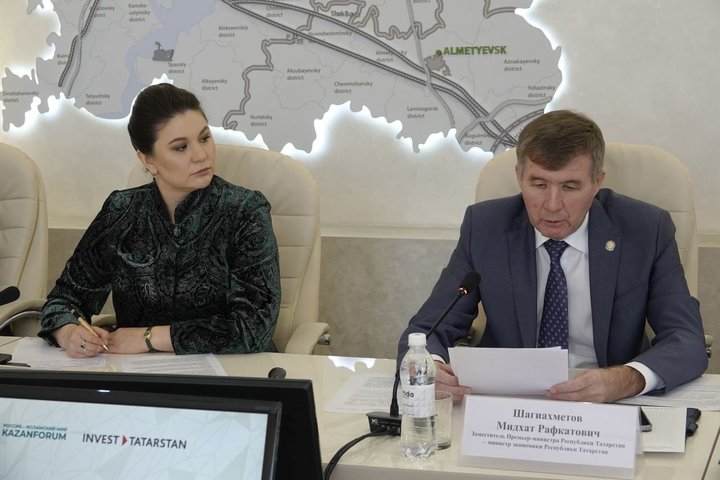
“Personally, we had two on-site inspections of the Central Bank: a group of 5-6 people came. It takes a month to explain to them [how Islamic transactions work], since they do not know about these products," complained Rustam Shafigullin, the head of the Housing Traditions cooperative, which sells housing under Islamic mortgage, about the close control of the Bank of Russia. During the first year of the federal experiment on partner financing, the volume of transactions in Tatarstan doubled, but in two other regions — Dagestan and Chechnya — businesses do not want to come out of the shadows, there are near-zero deals. However, this will not prevent us from moving towards the “Malaysian miracle” — the republic is preparing amendments to FZ-417 in order to be the first in the country to place capital through sukuk. Read the details in the material of Realnoe Vremya.
Does the Islamic world not see Tatarstan yet?
“Have you seen a map with the geography of the spread of Islamic banking in the world (prepared by the accounting and auditing organisation AAOIFI — author's note)? The territory of Russia is painted in the same color [where there is none]. But there are four regions in the country [where it exists]. It means that we are not seen in the world yet," said Taliya Minullina, the head of the Tatarstan Investment Development Agency, after the meeting with participants in the federal experiment on partner financing.
For almost four hours, the agency held a discussion about the barriers preventing the penetration of Islamic banking into the country. A year ago, a two-year experiment was launched on the territory of four pilot regions — in Tatarstan, Bashkortostan, Chechnya and Dagestan, but its success is not impressive yet. Tatarstan accounts for more than half of the total turnover in the first half of the year — 2.8 billion rubles, while the other three regions account for only 2.2 billion rubles.
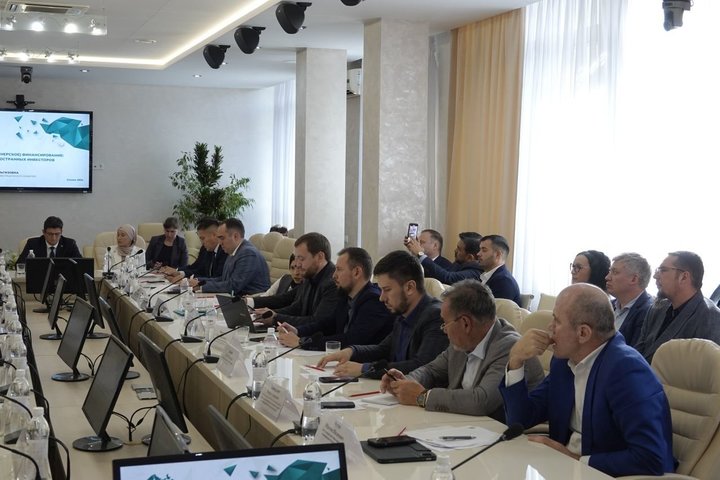
The uneven dynamics of the penetration of Islamic banking in the regions, according to the Tatarstan authorities, is due to the lack of uniform standards for concluding transactions. Moreover, they should be close to the AAOIFI standards generally accepted in the world for the management of Islamic financial institutions. This proposal was addressed to representatives of three Muslim regions by Deputy Prime Minister of the Republic of Tatarstan Midkhat Shagiakhmetov.
Closer to AAOIFI standards
“It is important to introduce common standards: their absence is one of the key problems and hinders cooperation in the international market," he said.
He cited Malaysia as an example, which is the leader of the global Islamic banking. According to Shagiakhmetov, there are 14 standards for the management of Islamic financial institutions in this state. Thanks to this, the share of Islamic finance in the country's economy has doubled to 45%.
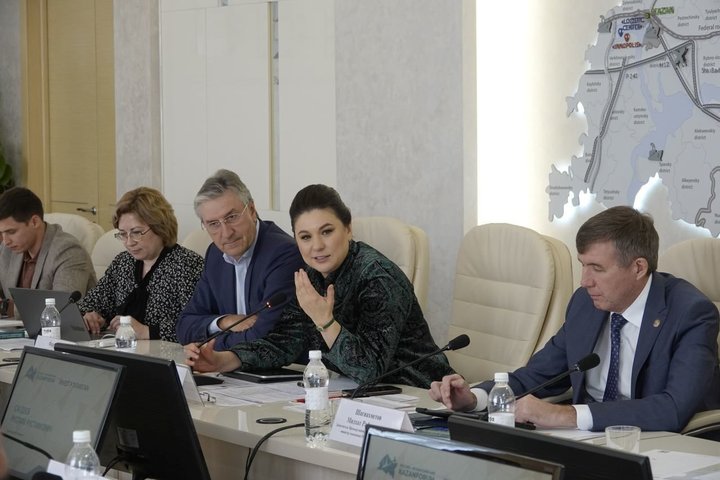
Therefore, he proposed to take as a basis the standards developed by the Guarantee Fund of Tatarstan in attracting investments through a bond loan (sukuk) and when issuing a guarantee. Their essence boils down to ensuring that each “green” transaction of a bank or a microfinance organisation is subject to external control by the clergy, and members of the Muslim Spiritual Board (MSB) can join the governing bodies of the financial institution. In this case, investors' confidence in Russian Islamic banking instruments will increase. Currently, the clergy gives approval (fatwa) only for the Islamic product as such and does not participate in the work of the institution.
The standards will be submitted to a meeting of the expert council at the Central Bank in October, after which adjustments will be made to the 417-FZ.
Echo of the meeting with Malaysian Prime Minister Anwar Ibrahim
The focus on the Malaysian model of Islamic finance management appeared after the Eastern Economic Forum (WEF). Russian President Vladimir Putin held talks there with Malaysian Prime Minister Anwar Ibrahim on expanding cooperation, after which Tatarstan began to consider organising the country's first loan placement — sukuk.
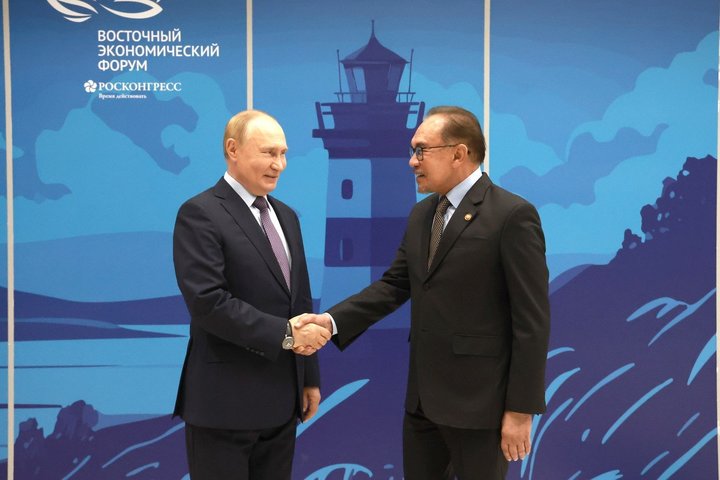
“We turned to the head of the region, Rustam Minnikhanov, with such a proposal. Let's see how he reacts," Taliya Minullina said.
The parameters of the future loan have not yet been determined. Perhaps sukuk can become a kind of apogee of Islamic banking in Tatarstan.
The authorities in the republic are satisfied with the progress of the experiment. According to Midkhat Shagiakhmetov, during the first year of the experiment, the number and amount of “Islamic transactions” increased by 2 times — up to 2.8 billion rubles. There are 18 Tatarstan organisations in the register of the Central Bank, while a total of 24 participants are registered in it. They have launched about 30 partner products. They were developed at the Institute of Islamic Economics and Finance at the Russian Islamic University, approved by the clergy and have a certificate of the Muslim Spiritual Board of the Republic of Tatarstan. The services for the purchase of housing are most in demand. Since the beginning of the year, about 900 contracts worth 4.3 billion rubles have been signed. 17,000 debit cards of banks participating in the experiment were issued to the population. Products for the purchase of equipment for leasing by a Regional leasing company have been launched for entrepreneurship. Small businesses received support for 100 million rubles, Midkhat Shagiakhmetov said.
Caucasus remains in the shadows, and Tatarstan is under pressure
“The adoption of the law has increased activity. But it is necessary to involve in the experiment those who work in the market of Islamic finance in other regions," the minister stressed.
The brake on this path is that in the current 417-FZ “not all types of activities are represented”. Shagiakhmetov promised that the list will be replenished when amendments to the law are made.
However, the changes will affect not only the conditions for conducting Islamic banking. According to State Duma deputy Ayrat Farrakhov, amendments are being developed to extend the experiment, perhaps it will be made indefinite. On the other hand, there is an opportunity for other regions to join the experiment.
“Those who will prove what is important and necessary for them," Farrakhov said. After all, Islamic banking cannot differ by belonging to one region or another, so the conditions should be spread throughout the country, he believes.
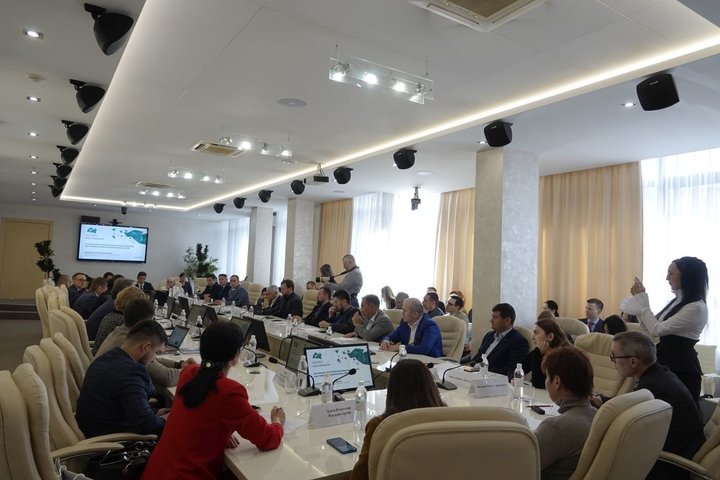
On the other hand, the Caucasian regions are in no hurry to come out of the shadows. In Dagestan, more than 15 organisations provide partner financing services, but none of them wants to register in the register of the Central Bank due to “unwillingness to show their volumes”, Maria Jamalutdinova, the head of the department of the Agency for Entrepreneurship and Investments of Dagestan, drew attention to the problem of legalisation of players in the region. There are no official transactions registered in the region.
In Bashkiria, the number of participants in the federal experiment on partner financing remains small — there are only five of them. The largest of them is the regional leasing company with state participation Regional Leasing Company of the Republic of Bashkortostan JSC (RLK RB), sharia representative of Bashkortostan Madina Kalimullina said. After the introduction of the experiment in Bashkortostan, 11 deals worth 35 million rubles were concluded, of which RLK RB concluded contracts worth 27 million rubles, she said.
Meanwhile, Tatarstan businesses are being tested by inspections.
“Personally, we had two on-site inspections of the Central Bank: a group of five or six people came. It takes a month to explain to them [how Islamic deals work], since they do not know about these products," Rustam Shafigullin, the head of the Housing Traditions (Zhilishchnye Traditsii) cooperative, who sells housing under Islamic mortgage, complained about the close control of the Central Bank.